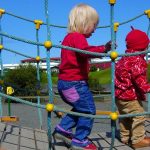
Obesity and compromised immune function disturb children’s nighttime breathing, leading to behavior, learning and memory problems
Monday, August 06, 2018 by Rhonda Johansson
http://www.naturalnewsresearch.com/2018-08-06-obesity-and-compromised-immune-function-disturb-childrens-nighttime-breathing.html

Hungarian scientists have concluded that abnormal respiratory behaviors during sleep can negatively affect the cognitive development of children. The authors of the new study state that deep sleep, characterized by long, slow brain waves, is hampered or abruptly aroused when a child snores or displays any symptom associated with sleep-disordered breathing (SDB). It was observed that children who display more severe forms of SDB performed poorly in cognitive tasks, especially those related to short-term memory.
SDB pertains to a broad spectrum of chronic conditions that occur during the night manifested in the partial or complete cessation of breathing. This ranges anywhere from primary snoring to complex cases of obstructive sleep apnea. Many health consequences have been associated with SDB in adults but it was only recently that sleep specialists had determined a more chilling effect on children.
As part of the study, 27 children were observed. Each child suffered from varying forms of SDB (as reported by their parents) and was sent to the Sleep Disorders Laboratory of Heim Pal Children’s Hospital in Budapest, Hungary to undergo an overnight polysomnography session. The test confirmed that every child had at least primary snoring.
Further analysis of data found that snoring often cut the total sleep time of the child. Children who lacked sleep complained of feeling drowsy in the morning.
More peculiarly, children whose snores cut through their deep sleep cycle performed more poorly during cognitive tasks compared to those whose SDB reduced the length of “lighter” sleep. The researchers hypothesize that behavioral and cognitive profiles are more dependent on deep sleep than the medical industry initially perceived.
All the same, children whose sleep is disturbed due to a respiratory problem often display behavioral dysregulation – regardless of where in the sleep cycle their rest is obstructed. It is believed that the lack of oxygen flowing into the brain causes shifts in how neural connections are made and strengthened during sleep. This already has detrimental results in adults but has more impact among the very young whose brains are still developing. (Related: Snoring May Be More Dangerous Than You Think.)
It is a domino effect. A lack of sleep can influence cognitive performance and trigger unwanted behavioral patterns. These, in turn, can prompt unhealthy eating and relationship habits, not to mention its effects on academic performance.
It is estimated that 10 percent of American children snore, while two to four percent of the pediatric population have obstructive sleep apnea.
Understanding the condition and its risks
Your child may have SDB if they have labored breathing or loud snoring during sleep. Notice other subtle signs as well, including a rib cage that moves inward as the child inhales, twitching and sudden movements during sleep, sweating during sleep, wetting the bed, having morning headaches, complaining of excessive daytime sleepiness, and sleeping with the neck overextended.
Current evidence suggests that both boys and girls can develop the condition. Nevertheless, obesity is the biggest risk factor for SDB along with obstructive sleep apnea. This is because the excessive fat hinders normal breathing when the child lays down.
Children who are born with an abnormal facial structure are also at risk of developing SDB. It is common in toddlers diagnosed with Down syndrome and other neuromuscular diseases.
New data show that enlarged tonsils and adenoids are a common cause of SDB. Parents may be recommended to have these surgically removed.
Medical professionals believe that a holistic approach should be used in developing treatment plans for SDB in children. This involves engaging the child in a fairly easy weight reduction program and assessing the underlying cause of the SDB. In most cases, snoring is a symptom of another illness.
Keep up-to-date on the latest medical research on children’s health at Research.news.
Sources include:
Tagged Under: Tags: badhealth, children's health, cognitive performance, disorders, fitness, obesity, obstructive sleep apnea, OSA, research, science, SDB, sleep, sleep disorders, sleep-disturbed breathing, slender, snoring





